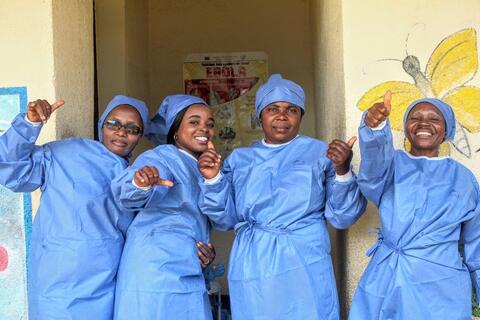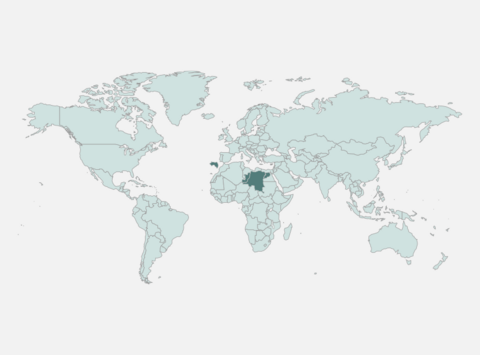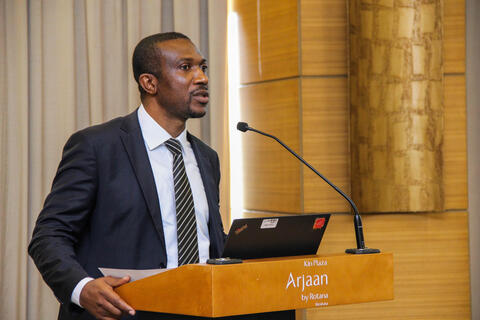The recent mpox epidemic, declared a public health emergency of international concern (PHEIC) in August 2024, generated a massive wave of information. However, just like during the COVID-19 pandemic, the spread of false information, misinformation and rumours considerably exacerbated the impact of this health crisis. Erroneous claims about modes of transmission and vaccine efficacy were widely circulated, particularly on social networks, contributing to confusion and mistrust within communities. This media overload, marked by the dissemination of inaccurate information, has amplified mistrust of the authorities and made the task of public health experts more complex, making the dissemination of reliable, fact-based recommendations particularly difficult.
False information, often spread via social media, creates an environment where rumours and misconceptions reinforce each other, overshadowing expert messages5. This phenomenon, described by WHO as an 'infodemic', refers to the overload of information, often misleading, during a health crisis. This has had a major impact on Red Cross teams in Gabon, causing stress, confusion and sometimes a loss of trust in response strategies.
This article explores the challenges faced by Red Cross staff and volunteers in dealing with the proliferation of misinformation. It also suggests ways of strengthening the psychological and behavioral resilience of teams, highlighting effective communication strategies, improved collaboration with civil society and the importance of consistent messages to limit the deleterious effects of misinformation on community responses.
Context and challenges
The emergence of clade 1b of the mpox virus (MPXV), combined with its rapid spread to neighbouring countries, has led to an overload of information that is often contra- dictory or alarmist. It is in this context that on 22 August 2024, the Ministry of Health of Gabon reported an imported case of mpox, drawing the attention of Red Cross volunteers and staff in the front line of the response.
The psychological impact of misinformation on humanita- rian workers is well documented. Studies of previous epidemics, such as Ebola and COVID-19, have shown that misinformation can exacerbate stress, anxiety, burnout and loss of motivation among aid workers. During the mpox epidemic, stigma emerged as a major challenge, particularly in contexts where the disease was falsely associated with certain social groups. This situation further complicated the work of healthcare workers, who were managing high expectations from the communities they served, regular scientific updates and rumours spread on social networks.
For Red Cross staff and volunteers in Gabon, these dyna- mics generated additional pressure in the midst of ongoing epidemics. It was therefore crucial to understand how these infodemics specifically affected their mental health and professional behaviour. These impacts particularly manifested through:
- Increased stress and anxiety: Constant exposure to information, often focused on the risks and severity of the disease, exacerbated the emotional stress of the teams. Some members reported feeling powerless in the face of the sheer volume of information to be processed. An analysis of the responses to the GAD-7 self-administered scale10 revealed a diversity of anxiety symptoms experienced by team members. Nervousness, worry or tension were the most common symptoms reported by 60% of participants lasting ‘several days.’ Other dimensions, such as difficulty controlling worrying, restlessness or feeling afraid as if something awful might happen, were mainly reported as being experienced ‘not at all’ or ‘several days’, reflecting substantial variability in responders' experiences of infodemics.
- Eroded trust: Contradictions between official and unofficial sources created doubt among some volunteers, compromising their ability to convey consistent messages to communities. When asked about the reliability of different sources of information, health authorities were considered the most reliable, with 54.5% of participants rating them as ‘very reliable’. Television and radio followed, with 45.5% of respondents sharing this opinion. In contrast, social media and print/online media were less well regarded, with only 4.5% and 22.7% respectively rating them as ‘very reliable’. Rumours and word of mouth were considered the least reliable sources, with only 2.3% rating them as ‘very reliable’ and 31.8% as ‘not at all reliable’.
- Decision fatigue: The constant need to discern reliable information led to cognitive overload, reducing the effectiveness of interventions in the field. Analysis of emotional responses over the past month revealed substantial variations in participants' experiences across different dimensions. For example, 40% of participants said they sometimes felt overwhelmed by unexpected events that they could not control, while 30% said this never happened to them. Similarly, 50% of respondents said they sometimes felt nervous or stressed, although 30% said they almost never felt these emotions. The ability to manage personal problems and control important aspects of their lives also varied: 50% reported moderate confidence, answering ‘sometimes’, while smaller proportions answered ‘quite often’ or ‘very often’.
- Behavioural adaptations and risk perception: The majority of participants (72.2%) reported modifying their behaviour due to mpox infodemics, primarily by strengthening prevention practices (27.1%), increasing distancing (25.9%), and avoiding discussions to prevent misinformation (23.5%), while fewer reduced interactions with beneficiaries (5.9%) (Figure 1). In contrast, 27.8% reported no changes. Perceptions of mpox risk also varied: 39.6% felt “Not at all influenced,” while 22.9% reported being “Slightly” or “Moderately influenced,” and 14.6% felt “Strongly influenced”. These findings highlight the diverse ways infodemics shaped both behavioural responses and risk perceptions among participants.
Responses put in place
A number of measures have been taken to mitigate these effects:
- Targeted training: Awareness-raising workshops on the critical analysis of information enabled teams to distinguish real facts from rumours. This training strengthened their ability to manage community interactions in a context of misinformation.
- Psychological support: The Red Cross set up discussion groups and psychological support to help staff and volunteers overcome stress. This initiative has fostered an environment of mutual support.
Centralised information channels: Creating an internal platform for official updates on mpox reduced confusion, giving volunteers direct access to validated information
Lessons learned and recommendations
- Importance of internal communication: Clear, centralised information reduces the impact of infodemics and allows teams to work with confidence.
- Strengthening psycho-social skills: Including a psychological support component in crisis management training improves volunteers' resilience in the face of prolonged stress.
- Partnerships with the media: working with media platforms (including community radio stations) to broadcast coherent, contextualised and reliable messages in local languages helps to limit the spread of rumors in communities (Figure 2).
Conclusion
The mpox epidemic in Gabon revealed the impact of disease outbreaks on front-line workers, underlining the importance of strategies combining communication, psychological support and training to strengthen their resilience. This experience offers valuable lessons for improving the global response to health crises, based on adaptive and replicable approaches. By protecting those who protect others, these efforts help to sustainably strengthen the capacity of healthcare systems to deal with current and future emergencies.


